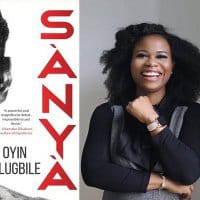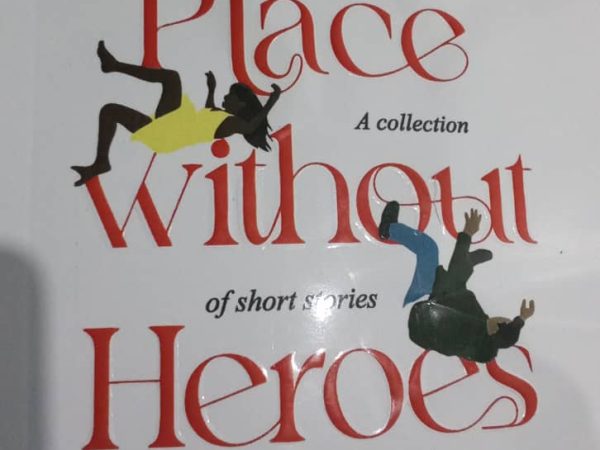By Temiloluwa Ibitomi
On Saturday, May 24, 2025, Noirledge Publishing hosted a book reading and conversation at RovingHeights bookstore in Ibadan. The literary gathering brought together the 2024 winner of the Nigerian Prize for Literature, Olubunmi Familoni, members of the Association of Nigerian Authors (ANA), Oyo State Chapter, Dele Morakinyo—convener of the Niyi Osundare International Poetry Festival—and other literary enthusiasts from within and outside the Pacesetter State.
At a time when Nigeria’s reading culture is widely perceived to be in decline, the event, which featured readings from two recent titles—The Ones Before You by ’Jọba Ọ̀jẹ̀labí and If My Country Had a Jury by Olabisi Ajakaiye—was marked by thoughtful engagement and vibrant discussion.
Ọ̀jẹ̀labí’s The Ones Before You is a collection of confessional poems that explores romance, filial ties, and friendship with emotional depth and philosophical subtlety. The poems resist simplistic judgments, instead finding meaning in the shared moments that define human relationships. While deeply personal, the collection offers reflections that resonate with a broad audience. The book has received praise from acclaimed authors such as Tade Ipadeola (The Sahara Testaments), Olubunmi Familoni (The Road Does Not End), Dami Ajayi (Affection & Other Accidents), and Adedayo Agarau, editor-in-chief of Agbowó.
The event opened with Ọ̀jẹ̀labí reading “Ibadan,” a poem from the collection. The setting of the reading added relevance and connection for the audience, many of whom recognised the sentiments reflected in the poem.
The mood deepened with a performance by Fatihah Quadri Eniola, whose spoken word piece on gender violence struck a poignant chord. “If a woman is made from the ribs of a man, then she should not be broken by him,” she declared, concluding with the haunting question, “What crime is it to be a woman?” Her words lingered in the silence that followed.

Book cover
Next came an excerpt from Ajakaiye’s If My Country Had a Jury, a futuristic legal fiction set in the year 2050. The novel tackles the delicate subject of rape with sensitivity and purpose, weaving a suspenseful narrative around a high-profile case involving the child of a prominent figure. Remarkably, Ajakaiye without a formal legal training, crafted a 384-page thriller that imagines a Nigerian jury system and advocates for legal reform and justice.
The conversation session that followed, moderated by book reviewer Micheal Olatunbosun, sparked engaging questions from the audience. One participant asked Ajakaiye why the story was set in the future. The author responded that Nigerian literature often reflects the past through flashbacks, but he chose to write about the future to challenge the national tendency to dwell on history. “Our creative works rarely anticipate the future,” he said. “We must begin to imagine it.”

A cross section of the audience
Olatunbosun probed further, focusing on the reforms Ajakaiye proposed in his book—particularly those involving the Nigerian Youth Service Corps (NYSC) and the Joint Admissions and Matriculation Board (JAMB). Ajakaiye criticised the current education system’s over-reliance on exams with limited global recognition and called for a shift toward skill-based education and technological integration. “We need to prioritise skills over certificates,” he said. “That’s the only way forward.”
When asked about the idea behind using a jury system for the book, Ajakaiye questioned whether the average Nigerian could deliver unbiased justice. “Can we really trust 12 Nigerians to judge a case without sentiment—without tribal, gender, or political bias?” he asked. “We judge based on pre-conceived notions, not always on facts.”
In response to Olatunbosun’s observation that the novel lacked optimism about tackling corruption, Ajakaiye admitted, “We may not cure it, but we can manage it with systems that work. Right now, Nigeria has powerful people, not powerful systems.”
During the conversation, Ọ̀jẹ̀labí also addressed criticism of two poems in his collection, “How to Love a Thick Lady” and “Small Packages.” He explained that the poems present different perspectives, not as an endorsement of body shaming but as an attempt to explore contrasting experiences with balance.
RovingHeights, a major distributor of books in Nigeria, recently opened its Ibadan store. This event was their second literary gathering at the new location. In an interview, Familoni praised the expansion, noting that while Ibadan has long had bookstores, many are now defunct or limited in selection. “What RovingHeights does well is availability and delivery,” he said. “In Ibadan, you can place an order and get your book delivered. We need more of this.”
A RovingHeights staff member also commended Noirledge Publishing for organising such a well-attended and engaging event.
Morakinyo, the poet, and festival founder, lauded both authors for their work and contributions to the literary conversation.
Spanning nearly two hours, the event included spoken word performances, author readings, a moderated discussion, audience Q&A, and a book signing session. The first five attendees also received free autographed copies of the featured books.
In closing, Familoni offered a nuanced reflection on the state of reading in Nigeria. “It’s not just that people aren’t reading, it’s not that linear. Economic factors play a big role. Books are expensive, and many can’t afford them. But I believe people still want to read. The culture may have declined compared to the ’60s and ’70s, but the desire remains. We just need to make books more affordable and accessible—maybe even subsidised.”
The event is the first in a series of year-round programming, designed by Noirledge Publishing through the Ibadan Book and Arts Festival initiative to nurture literacy, promote artistic excellence, support library development, and empower the next generation of cultural leaders.

















